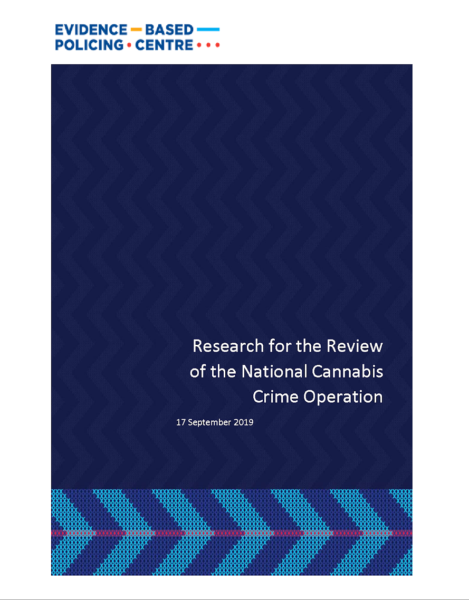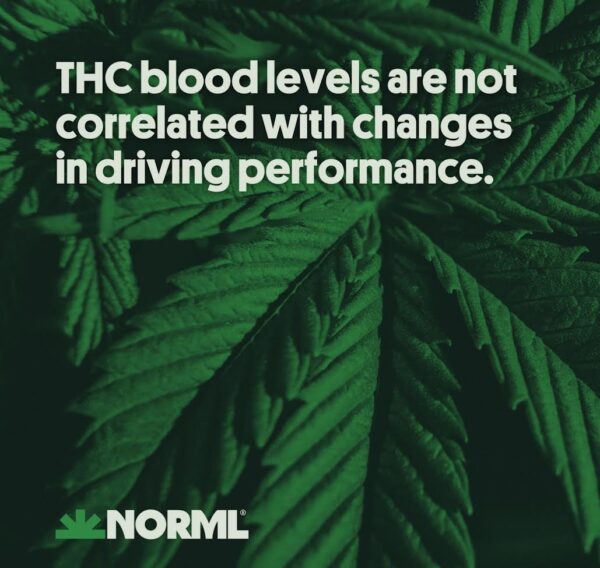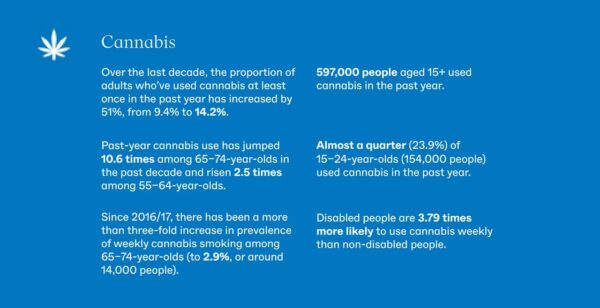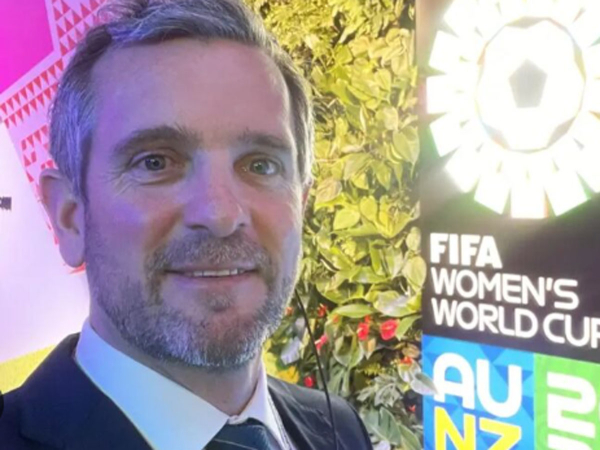[ad_1]

Police Minister Mark Mitchell backs aerial cannabis operations, but hasn’t read evidence-based reports
Citizen reports indicate police are continuing to run aerial cannabis eradication programmes in some regions around New Zealand, using helicopters and fixed wing aircraft to locate and poison crops (without knowing if they are for medicinal or adult use), and armed squads on the ground. It’s a total waste of time and money.
On Newshub, Chlӧe Swarbrick unleashed a report from the Evidence-Based Policing Unit which said there was “little empirical evidence available to suggest that crop eradication has a positive impact on the supply and availability of cannabis”, and she also pointed to use rising over the same period.
Even worse, responding to a Written Parliamentary Question from Chlӧe, Police Minister Mark Mitchell indicated he wouldn’t intervene to make police stop, and said “I don’t think I needed to have read that report.”

Individual police districts can apply for funding from around $900k annually, taken from asset seizures. Last summer most districts opted out, but police in three districts chose to participate: Northland, Coromandel and East Cape.
All three areas had also just been hammered by Cyclone Gabrielle. Helicopters arrived not to help but to bust locals.
On Newshub, Chlӧe Swarbrick asked “Why they are spending a better part of a million dollars in sending up helicopters and playing tin soldiers in the sky when those resources could be better deployed else well?”
I met with Chlӧe last week. It’s great she is still prioritising drug law reform and will remain spokesperson as new co-leader of the Greens. Listen to the Marijuana Media pot-cast here:
Drug driving tests set to fail
In their new Land Transport policy the National-Act-NZ First triumvirate says it wants police to test 50,000 drivers for drugs. This is what it says:
“Enact legislation to rollout roadside oral fluid drug testing and set targets for Police to undertake 50,000 roadside oral fluid tests per year once the provisions come into force.”
Simeon Brown’s reasoning has always been that ESR figures show drugs are as much of a problem as alcohol. ESR’s figures do appear to show that, but they include drivers with any detectable amount of any drugs, but only drunk drivers who were over the legal limit.
This inflates the figures for drugs while underestimating the impact of alcohol (which impairs drivers at levels lower than the legal limit).
But the Land Transport (Drug Driving) Amendment Act is Labour’s law, passed during the previous parliament. With the Ayes 108 and Noes 12, only the Greens and Te Pati Māori opposed it.
A summary of the current process is:
Police can use an approved oral fluid test device that detects recent use. Since the devices are presumed to be unreliable, drivers would need to fail the test twice. Police procurement couldn’t find a device that detects ‘recent use’.
Alternatively, trained police can perform a Compulsory Impairment Test (also known as a Roadside Sobriety Test). The results are entirely subjective based on their opinion of how you look performing certain tasks. The CIT is followed by an evidential blood test. Drivers can also have a blood test if they are hospitalised.
Detection of low levels of qualifying drugs (eg 1ng THC) in either saliva or blood is an infringement, punishable by a fine and 50 demerit points, while detection of higher levels (eg 3ng THC) is a criminal offence, meaning arrest, court, possible jail time.
But regular cannabis users – including patients who use it medicinally – will have levels higher than this all the time, whether they are impaired or not. Regular cannabis users could test higher than these levels for several two or three after cessation of use.
Any approved device must show recent use. Section 71G of the Act says the Minister of Police can approve a device “only if the device detects the presence of a qualifying drug at a level that indicates recent use of a specified qualifying drug.” That’s the point. But the Ministry of Transport says the police procurement process could not identify a suitable device.
Oral fluid testing devices used in Australia are inaccurate either way twenty per cent of the time. So one in every five sober drivers is falsely accused of being impaired, while one-in-five tested drivers who are impaired are not detected.
The MoT notes Australian oral fluid devices are accepted there as screening tools, not evidential tests. They detect presence, but then require further testing. New Zealand law, on the other hand, requires the device to be an evidential test – so it must prove impairment, or at the least, “recent use”. It’s a higher standard of proof.
But rather than finding a test that actually detects impairment, police have proposed changing the law so oral fluids are instead sent to a lab (and then tested for all drugs).
Like Australia, the oral fluid device would be used as a screening tool, with the blood test used for evidence. That would make those dodgy Aussie devices eligible for approval here.
This briefing paper went to Kiri Allen & Ginny Anderson last May and was then approved by Labour’s cabinet. The cabinet paper says it would require a law change, which didn’t happen.
It’s a safe bet the current government are picking this up (their police statement says “Enact legislation to rollout roadside oral fluid drug testing…”).
This is not evidence-based policing. Over the last few weeks alone, several studies have added to the evidence against setting arbitrary per se limits for cannabis and driving.
One study found daily consumers become tolerant to psychomotor-influencing effects (ie, less impaired compared to someone who uses less); a second study found medicinal cannabis has a “negligible impact on driving performance when used as prescribed”; a third recent study found cannabis use is not associated with a higher risk of a vehicle accident; while another confirmed THC blood levels are not correlated with changes in driving performance.

If there is any good news, it is that drivers here have a Medical defence – which is another good reason to get a prescription.
Remember too that NORML’s Principles of Responsible Cannabis Use include “no impaired driving”, and we advocate a technology-based approach, such as the DRUID app, to more accurately gauge impairment.
Drug use report: cannabis and coke up, meth and ecstasy steady
Drug Use in Aotearoa, released by the NZ Drug Foundation, draws on the latest 2022/23 data from the NZ Health Survey, wastewater testing, and the NZ Drug Trends Survey.

Cannabis was used by 14.2% of adults annually, which is just under six hundred thousand people, and one third of those, or two hundred thousand people, use cannabis at least weekly.
That’s up 50% in the last 10 years – showing the failure of the current law. Incredibly, there was a ten times rise in cannabis use among 65–74-year-olds compared to ten years ago. That’s more than just boomers getting older. They’re also getting turned on to using cannabis perhaps for the first time, and perhaps for the medicinal benefits.

MDMA and meth were “steady”, but cocaine use doubled since 2017/8 and now more people use it than meth.
The research also contained a market report. New Zealand’s cheapest weed is in Nelson/West Coast, and Bay of Plenty, at $310/oz, and the most expensive is in Otago at $365/oz.

Auckland is in the middle at $344/oz, roughly the same price for ounces I was buying thirty years ago. Cannabis prices have been remarkably stable under our current law – another sign it has failed to dent supply or demand.
Germany’s passes quasi-legalisation law
Germany’s Bundestag has passed a ‘quasi legalisation’ law which makes cannabis legal but hard to buy.
Smoking cannabis in public will be legal across Germany from 1 April. Adults aged over 18 will be able to possess up to 25 grams in public or 50 grams at home and grow up to 3 plants at home.
To obtain cannabis, consumers can grow their own, join a non-profit cannabis club, or live in a state lucky enough to run a research pilot for legal sales. These pilots will run under stage 2 of the reforms.
It hasn’t been reported in any media here. Reuters said Germany becomes the ninth country to legalise recreational use of cannabis (“Germany joins the cannabis club”) and quoted Health Minister Karl Lauterbach speaking during the debate, saying “We have two goals: to crack down on the black market and improved protection of children and young people.”
The Guardian noted Germany will become the third European Union member state to legalise cannabis for personal use, after Malta and Luxembourg. The Netherlands is decriminalised but tolerates commercial sales within certain rules, while Spain and other countries tolerate cannabis clubs.
NY Times said Germany’s move towards legalisation makes it “one of the few European nations — and by far the largest — to do so”. The NY Times also wrote that “Germans are split on the proposal. According to a poll released on Friday, 42 percent support legalization, while 47 percent were against it.”
Nevertheless, the law from the ruling 3-party coalition, which includes the Greens, was passed 407 votes to 226 according to DW news.
The BBC reported Germany legalises cannabis, but makes it hard to buy:
“Original plans to allow licensed shops and pharmacies to sell cannabis have been scrapped over EU concerns that this could lead to a surge in drug exports.
Instead, non-commercial members’ clubs, dubbed “cannabis social clubs”, will grow and distribute a limited amount of the drug.
Each club will have an upper limit of 500 members, consuming cannabis onsite will not be allowed, and membership will only be available to German residents.”
MJbizdaily said the non-commercial policy means economic benefits would be limited but a boost is expected for the medical cannabis sector, as prescriptions will be easier and domestic production authorised.
It may not lead to other Euro countries following because upcoming elections are expected to favour conservatives, no one really follows Germany on anything, and the embedded pilot programmes will take many years to complete.
However, MJBizDaily also pointed out the Swiss & Netherlands pilot legalisation programs are underway, Czech has passed their new legalisation law, and Malta now has legal cannabis social clubs. Listen to more here:
Other news
NZ Herald (premium) asks Alcohol consumption falls in ‘challenging’ year for brewers, producers – but have Kiwi attitudes to booze changed? “Alcohol available for consumption fell by the biggest amount in 15 years… Stats NZ data released today showed a 4.3 per cent decline last year compared to 2022.”
People were drinking less, which brewers put down to broader economic pressures, but actually consumers were embracing the zero-alcohol options. But think about this:
“Last year, people in New Zealand on average had 1.86 standard drinks per adult per day, Stats NZ said.”
OneRoof reports Clifftop mansion once owned by Mr Asia drug lord up for grabs again. “The property, which sits on a 1.46-hectare site overlooking Okiato Bay, was once owned by Terry Clark … Clark started building the multi-million-dollar home on Okiato Point using money from the drugs empire he had helped build. He never got to see the completed project, which at one point had its own escape tunnel.”
ODT reports Dunedin man jailed for drive-by shooting on busy street. Kaleb Bell, 26, was jailed for 2 years 3 months after firing a shotgun at a vehicle driven by a person who had just robbed him over a cannabis deal.
NZ Herald reports Murder trial begins for Ethan Dodds and Julius Te Hivaka, accused of killing Ben Mcintosh at West Auckland reserve. Prosecutors allege McIntosh was lured to the park under the guise of a drug sale.
NZ Herald reports Mahia man Harry Whaanga claimed cannabis and synthetic drugs found at his house were for personal use – 666g of cannabis and 471g of synthetics, plus $31,760 in a safe with the password “shop” suggested otherwise. The article notes MoDA still has a presumption of supply – which our Supreme Court has said breaches the Bill of Rights and is therefore open to continued challenge.
Marijuana Media airs every Thursday at 4:20pm on 95bFM, with bFM Drive’s Milly and Chris Fowlie from The Hempstore. Stream or download hundreds of Marijuana Media pot-casts at 95bFM.com (or via iTunes / RSS feed). Thanks to The Hemp Store!
[ad_2]
Source link





















